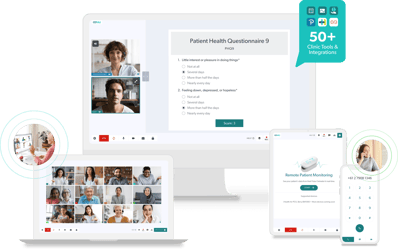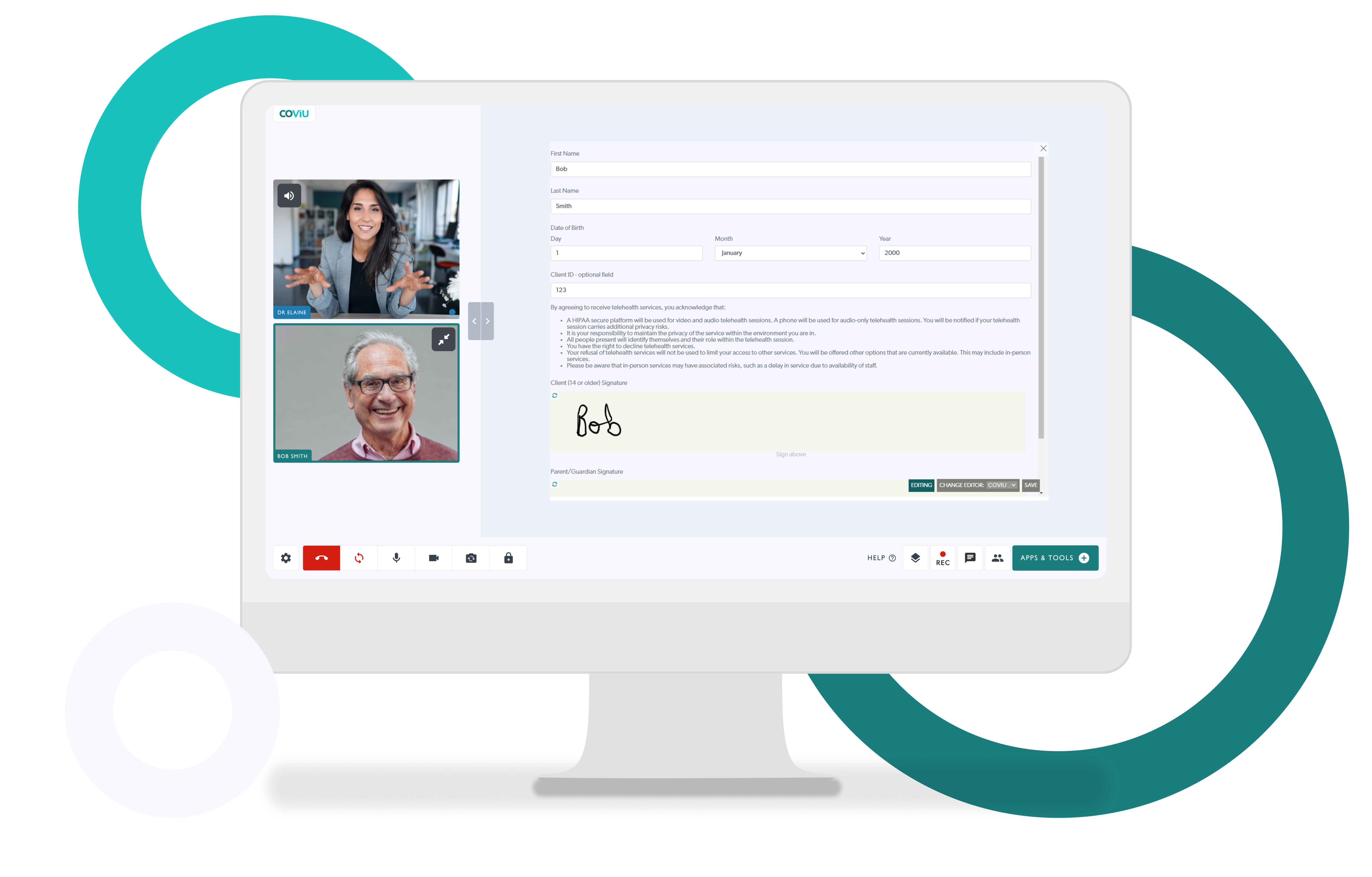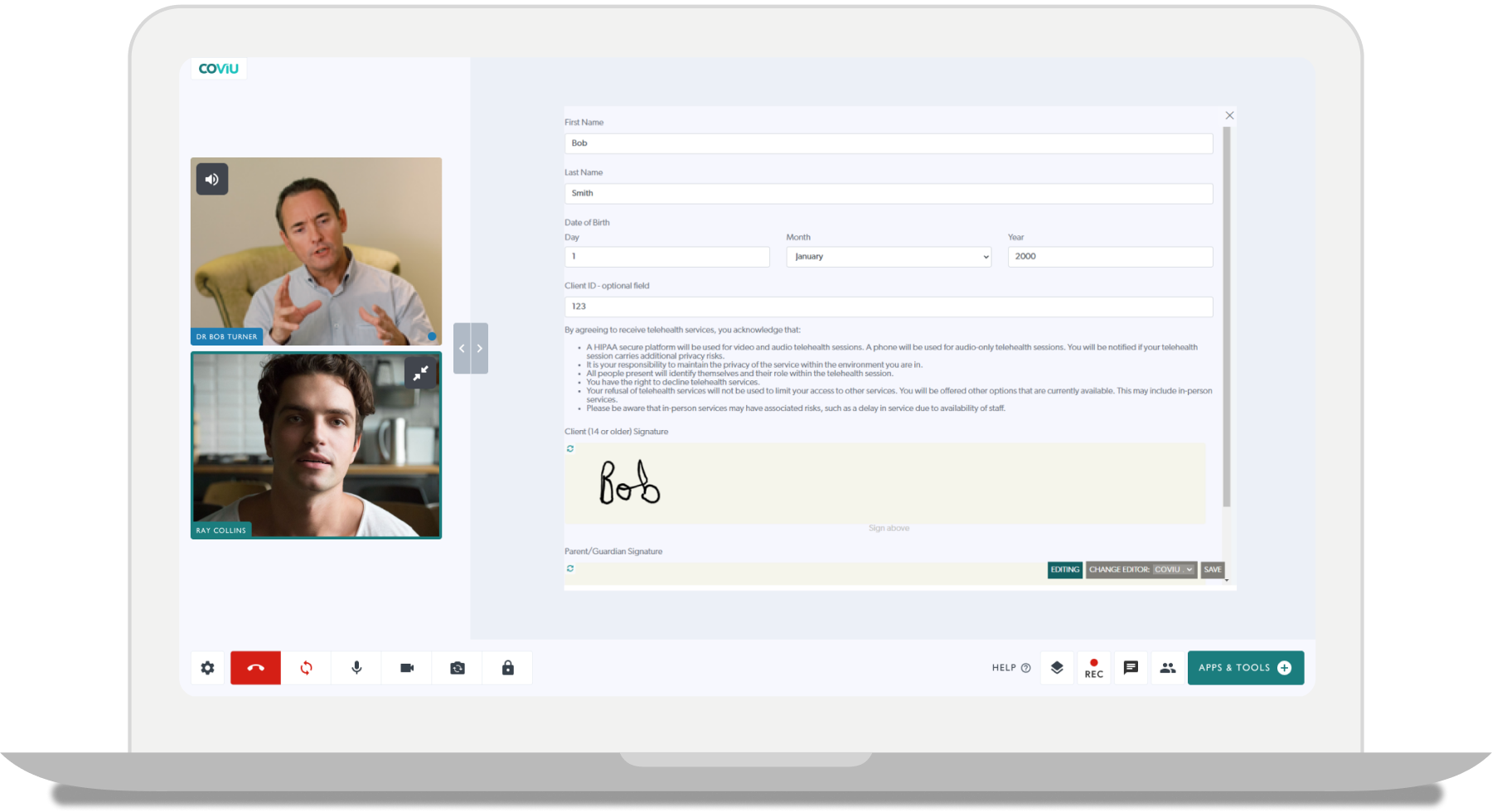Telehealth for Collaborative Care
In the second article of our Future of Digital Health Series for 2024: Digital health technologies, such as telehealth, are demonstrating numerous advantages in the implementation of collaborative care models. Despite some existing limitations, such as changes to reimbursements for patient-end support services, there are several features that healthcare providers can leverage through telehealth to deliver better collaborative outcomes.
Collaborative Care with Telehealth
The shift towards a collaborative effort involving multiple health providers, patients/clients, their families, caregivers, and communities to deliver high-quality care is considered the future of healthcare.
Collaborative care models, emphasizing a team-based approach to healthcare, are increasingly benefiting from the use of telehealth solutions to improve the overall patient experience. Two key examples of how telehealth supports collaborative care models are outlined below.
1. Using group rooms for case conferencing
As telehealth transcends geographical limitations, allowing specialists and support members to connect easily regardless of their location, video conferencing using group rooms is seen to be an opportunity for improved collaborative care. Video case conferencing not only has the potential to improve the quality of care but also expands the range of expertise available to patients. Platforms like Coviu, accommodating multiple participants in a single consultation, play a critical role in improving collaborative care.
2. Recorded sessions for collaborative review
Another primary advantage of telehealth to achieve greater collaboration between clients and clinicians is the ability to securely record therapy sessions. This feature means that clinicians and the client can review past sessions to gain insights into the client’s progress, leading to a more personalized and effective treatment plan. Where client consent is present, these recordings have the potential to also be viewed by practitioners working on the same case.
In Coviu’s recent case study with Australia's University of Queensland, recorded sessions were discussed as a tool to train professionals under a collaborative model. Although not a common practice, recording consultations at the University of Queensland’s Centre for Online Health was explored as an audit tool and a way to achieve greater participation of all parties in an individual’s healthcare journey. Students explored the utility of recorded consultations, considering patient consent and privacy. Recorded sessions could benefit clients by aiding their recall of discussions or serving as valuable teaching resources, especially for students on placement or rural and remote GP upskilling.

Telehealth is an Opportunity for Collaborative Care
Despite some limitations, telehealth, with its recorded sessions and case conferencing mechanisms, remains a crucial tool in advancing collaborative care. Further education and research in this area are vital for the continued improvement of collaborative care models.
Ready to make the switch to a purpose-built telehealth platform?

Start a 2-week free trial and start running consultations within just minutes! To learn more about Coviu book a call with one of our friendly team members here.




